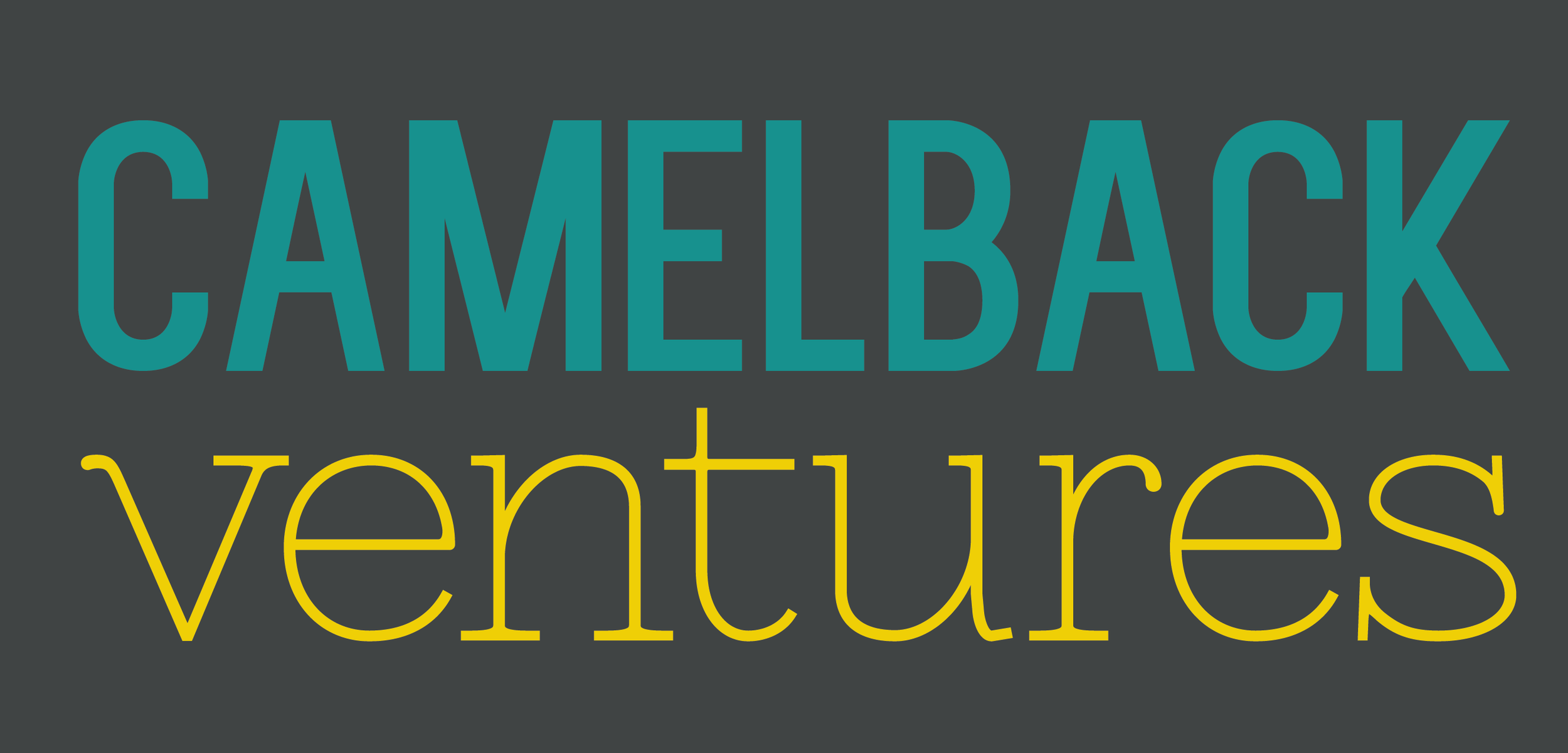Ripples of New Possibility
I recently spent five amazing days with the 2015 Camelback Fellows class. To see a vision that has been gestating for 18-months finally being birthed is exciting. To be in the presence of 11 entrepreneurs reminds me of what is possible when we elevate the genius of underrepresented entrepreneurs. To hear fellows express that the Camelback Summit gave them hope brings tears to my eyes. It is what I imagine a mother feels after 10 months when she sees her newborn child for the first time.
But life always mixes the bitter with sweet; it forces us to balance the tears of joy with the tears of sorrow. And though I’m happy—for myself, forCamelback Ventures, and for our first class of fellows—I’m reminded of the hope—and the frustration—that birthed our shared experiences.
Just prior to our Friday morning guided meditation session at the Summit, one of our fellows sent me an article that detailed Decker Ngongang’s experience at Echoing Green while launching the Black Male Achievement Fellowship. The post raised many questions about institutional racism—at Echoing Green and across the social innovation.
To sum up Decker’s article, I would say that if Echoing Green and other social innovation leaders continue to give only “lip service” to the issue of diversity—and not “LIFE service,” then we will never truly achieve the social impact we seek.
I have no knowledge of the veracity of Decker’s experiences. I was not there. Yet, as someone who has spent the last three years sitting with various high-powered CEOs, board members, selection committees, foundation grantors, investors and VCs … I understand.
As a black man and graduate from an Ivy League university who worked at a “white-shoe” law firm … I understand.
As an entrepreneur who has had high-profile investors say things like, “So really, besides diversity, why is this organization important?” or “Where I am from there are plenty of people from our community who will fund our issues; you should find people of color to fund issues for your community” … I understand.
[A side note to the aforementioned funders: Diversity is important, because our destinies are interconnected. And if we are to be successful, we need everyone at the table. And yes, black philanthropists need to step up to the plate and not be content only funding scholarship programs, local churches and athletic camps. Philanthropists of color need to start thinking like Bill Gates, which means using our money to move policy.That is real power. But in the meantime, Dear Funder, please do your job and fund individuals and organizations who are committed to social change, regardless of their gender, race or ethnicity. We have to stop relying on a trickle-down theory of justice to empower communities of color.]
I understand that feeling of being in a place, but knowing it was never really for you. I have that feeling when I laugh off racist jokes to keep the conversation moving. I have that feeling when I spend months with my communications team constructing the most innocuous way to discuss diversity so as not to offend anyone. I have that feeling every time I look at the Forbes 30 Under 30 in Education and find so few, if any, teachers, principals and entrepreneurs with black and brown faces. It is as though we don’t exist.
And so, during meditation, while I was supposed to be focused on my breathing, I could not focus. I was thinking about Camelback and our responsibility within this system. With each unfocused breath, it became more evident that I am right where I need to be. And so is Camelback.
We must provide opportunities to those who are far too often overlooked or undiscovered—many of whom are people of color.
We must keep challenging the archetype of success to ensure that our future can belongs to all of our children, not just a select few.
We must continue to grow our capacity to expand the places where capital is deployed, to end funding disparities that keep great ideas from flourishing.
Three days after Jackie Robinson's death, Reverend Jesse Jackson gave a stirring eulogy to friends and family members who had gathered at his funeral service in Brooklyn, New York. Reverend Jackson described Robinson as “a rock in the water, creating concentric circles and ripples of new possibility.”
Today, I ask that you plant your feet firmly in the water. Wherever you live, work or play—get in the way of injustice, work towards progress, improve systems and processes, be vocal, take risks, lift back as you climb up. And in doing so, you will create ripples of possibility that will change the course of our collective history.
We must be the change we seek to create in this world. I cannot promise you that change will come easily. In fact, I am sure it will be difficult. But change will come when more of us are emboldened with the courage and commitment required to speak-up, especially when others would rather we remain silent. Change will come with ventures like Brooklyn on Tech, Rooted School and Beyond Z.
Change will come when we all stand together as rocks in the water to create concentric circles and ripples of new possibility.

